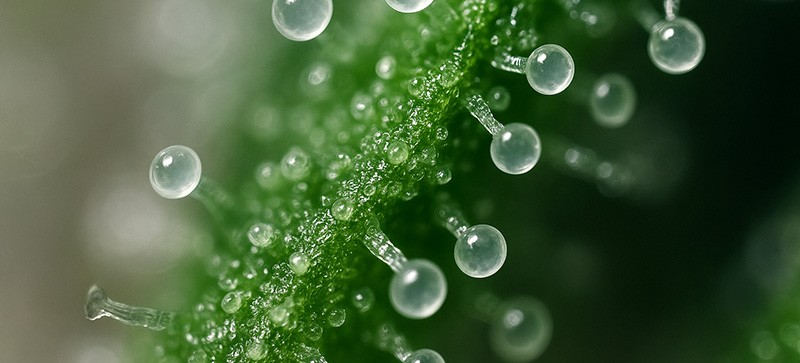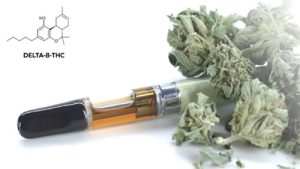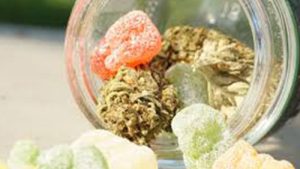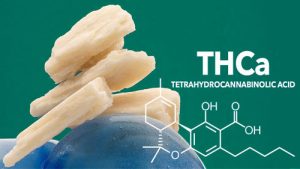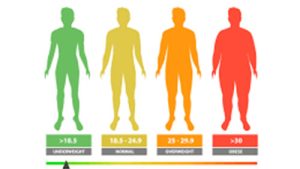Last Updated on May 7, 2025
The effects of THC or marijuana may fade away, but its metabolites can stay in your body longer. Active THC metabolites and the breakdown process take up to a few hours to show in your drug test.
Like different drug types, THC duration depends on different factors. And there are many methods to detect the THC presence in your body. Are you worried thinking: how long does tetrahydrocannabinol (THC) stay in your system?
In this article, you will get all the necessary information, including THC types, factors that affect drug tests, and methods to detect THC. Without further ado, let’s get started!
How Does Your Body Process Tetrahydrocannabinol (THC)?
Before heading to the main point, let’s acknowledge what THC is. THC (Tetrahydrocannabinol) is the psychoactive compound that is present in cannabis. Also, it binds to the CB1 and CB2 receptors of the human body’s endocannabinoid system. That’s why THC produces a “high” sensation compared to CBD.
Curious to know how does THC process in your body? After consuming THC or marijuana reaches various body tissues and organs (fat, brain, heart, etc). It is also metabolized or processed by the liver into 11-hydroxy-THC and Carboxy-THC.
As per studies, around 65% of cannabis eliminate by feces, and 20% leaves through urine. The rest 15% stay in your body. After several times, the stored THC spreads into the bloodstream, where the liver metabolizes them. If you are a heavy THC user, the ratio of THC metabolites will increase and show up on a drug test.
Let’s check out different types of THC and understand which one is stronger than the others in the next section.
Different Types of THC
Delta 8, Delta 9, THCa, THCv, and THCp - these five types of THC are found in the cannabis plant and are more popular worldwide. Let’s check out what factors differentiate all THC from each other below:
Delta 8 THC
Delta 8 THC has psychoactive properties and is considered a minor cannabinoid for its abundance as DELTA 9. It is legal to purchase or take only when they contain 0.3% THC (dry weight basis).
Delta 9 THC
Delta 9 THC is known as THC and is the most abundant THC isomer, which got legal permission in 2018, but when it contains no more than 0.3% THC. There are many side effects after taking this THC, including -
- Tranquility,
- Relaxation,
- Elation,
- Jubilation,
- Appetite increase, and so on.
THCA
The tetrahydrocannabinol acid (THCa) exists in the cannabis plants' leaves, stems, and flowers. Also, it has no mind-altering or psychoactive properties. Sometimes, most users turn THCa into Delta 9 THC by heating to give it psychoactive properties. In this stage, the THCA binds with CB1 and CB2 properties.
THCV
The tetrahydrocannabivarin (THCV) is a byproduct of THCA breakdown. In this, THC has no mind-altering properties and doesn’t last long as Delta 9 THC. But some users heat it to turn into a high Delta 9.
THCP
THCP’s scientific term is Delta- 9 tetrahydrocannabiphorol, which is also known as THC-heptyl or Delta-9 THCP. In 2019, it was discovered by scientists who found intense psychoactive properties. However, it is more powerful compared to Delta 9 THC.
However, after going through several types of THC, it’s time to explore different factors that impact THC testing.
What Factors Impact How Long Tetrahydrocannabinol (THC) Stays in Your System?
Curious thinking: how long does marijuana stay in your system, or how long will one smoke session stay in your system? The THC or marijuana metabolites can stay up anywhere in your system from 1 to 30 days. But it may vary your use habits and several factors, including -
Frequency of Use
Study shows that how long weed stays in your system depends on the time frame of marijuana use, like -
- How often do they use it per day?
- How long do they use it (1 month or years)?
Researchers state that the detection window for first-time marijuana users is about 3 days. But if you consume or take THC daily or more often, the detection window can last 30 days.
In short, if you are a regular user, you will get a positive drug test after 45 days. But a chain or heavy drug user will get a positive test result up to 90 days after the last use.
However, in hair follicle drug tests, there are five detectable cannabinoids, THC, THC-OH, THC-COOH, cannabinol, and cannabidiol.
Dosage and Potency
If you are a heavy THC user, then the metabolites of marijuana will stay longer in your system and take time to break down. Also, which types of marijuana you take depends on how long it stays. For example, Delta 9 THC is stronger than Delta 8 THC.
In general, it takes more than 7 hours to affect eating cannabis. Sometimes, people consume lots of cannabis through edibles, which affects the body system for several hours.
Method of Administration
Marijuana or THC metabolites eliminate from your body via normal bodily functions, like urine and sweat. High THC users will be able to eliminate marijuana more quickly than a slower one. In that case, the slower marijuana users detection window will be far longer.
Body Mass Index
BMI is another factor that affects marijuana detection. The higher your BMI or body fat, the slower the THC metabolize will break down. The main reason is that THC metabolites bind to fat molecules and stay longer in your system.
However, BMI will also affect body composition, ethnicity, race, age, and gender. Nowadays, most of the medical community considers BMI for its inexpensive and quick analyzing method.
Hydration
Dehydration is the most common thing that allows THC metabolites to stay in the body longer. If you drink enough water before your drug screening, the drug metabolites will pass away through urine.
But don’t think becoming hydrated will help you to pass a drug test. For this, you need to maintain a routine with a method like Mike’s Macujo method.
Genetics
Another core factor that affects marijuana stay in your system is genetics. Males consume more THC compared to women, and the vaping time is also different from each other. However, when a woman or male gains fat, this will affect the result.
After going through several factors, let’s check out some common methods of detecting THC in the next section!
Methods Commonly Used to Detect THC in the Body
Urine, blood, hair, and saliva are the core methods to detect THC in your body system. Let’s check out how long THC stays on those systems!
How Long Does THC Stay in Urine?
Through urine testing, marijuana or THC can be detected from a few days to several weeks after the last use. But it may vary on several factors, like level of usage. As per researchers' guidelines -
- Single-use or irregular THC can be detected up to 3 days after the last use.
- Moderate users (4 times a week ) can be detected around 5-7 days.
- Chronic or everyday users can be detected THC presence for up to 10-15 days.
- Chronic heavy users or multiple time use per day can be detected up to 30 days after the last use.
How Long Does THC Stay in Your Blood?
As per studies, marijuana or THC stays for a shorter period of time in the bloodstream. That’s why blood testing is not suitable for detecting drugs. It only shows off the current intoxication or use of THC around 1-2 days after the last use.
If you are a heavy THC user, the drug can still be detected for up to 25 days. In short, THC usage habits can affect how long it stays in your bloodstream.
How Long Does THC Stay in Your Hair?
Hair marijuana or THC testing takes up to 90 days after the last use because it has a long detection window. Scalp hairs can detect marijuana's existence in your body for three months.
That’s why it is considered the most reliable and accurate test among others. However, hair testing is ineffective for infrequent users and second-hand marijuana smoke.
How Long Does THC Stay in Your Saliva?
Saliva testing occurred for roadside drug screening of drivers. That means it can detect drugs in your system from 24-72 hours after the last use. Like blood, saliva testing is unreliable for detecting long-term marijuana use.
Do Edibles Show Up in Drug Tests?
Of course. THC that exists in edibles will show up on a drug test. Mainly, edibles indicate different foods and beverage items where cannabis metabolites are present. Edibles can be any combination of marijuana compounds, i.e., THC, CBD, or both of them. In the marketplace, it comes in different forms, like -
- Chocolates,
- Gummies,
- Baked goods, and so on.
As we all know, when you inhale marijuana as edible, THC metabolites will appear in urine and feces. It will also reach your bloodstream and spread overall body tissues. However, compared to THC, edibles take time to break down.
Here we’ve listed the average time of THC detection via edibles.
- Urine: 3-30 days.
- Blood: 1-2 days.
- Saliva: 1-3 days.
- Hair: Up to 90 days.
If you take any edible THC items once, it won’t last longer in your system compared to the frequent use of marijuana. Saliva tests are less or zero effective for edible THC testing. But for the safe side, avoid taking edibles between 1 to 3 days before drug testing.
Final Verdict
Now at the end of the article: how long does tetrahydrocannabinol (THC) stay in your system? We hope you get all details about THC metabolites' presence. If you want to pass your drug test, you must go through all factors and detection methods per THC use.
Feel free to share your drug testing journey with us if you have any suggestions or want to share yours. But try to develop a plan to stop overuse and pass your THC drug test.
FAQs
What are THC metabolites in urine?
11-Nor-9-carboxy-THC, known as THC-COOH, is the primary metabolite in urine.
What is the metabolite of carboxy THC?
The main secondary metabolite of carboxy THC is 11-Nor-9-carboxy-Δ9-tetrahydrocannabinol (11-COOH-THC or THC-COOH), known as 11-nor-9-carboxy-THC or THC-11-oic acid.
What is the main metabolite of THC?
The main metabolite of THC is tetrahydrocannabinol carboxylic acid (THC-COOH) which is also known as 9-carboxy-THC (11-nor-9-carboxy-▵ 9 -tetrahydrocannabinol)
What are the effects of THC on time perception?
A psychoactive dose of THC may increase the internal clock speed by time perception and underproduction.
What metabolite is detected in THC determination?
The THC main metabolite is tetrahydrocannabinol carboxylic acid (THC-COOH), which is referred to as 9-carboxy-THC (11-nor-9-carboxy-▵ 9 -tetrahydrocannabinol).
Which method is effective to pass a drug test for weed?
You can follow Mike’s Macujo method to pass the THC drug test. With this method, you get all the necessary information and the most demanding detox shampoo Macujo Aloe Rid. Also, they offer high-quality products for urine and saliva tests that help pass all types of drug tests.
How long does 0.3% thc stay in your system?
For up to 5 hours, the 0.3% THC will stay in your system.
How long does 5mg of thc stay in your system?
The 5 mg THC will stay for 5-7 days after a single use in your system.
How long does 10mg of thc edibles stay in your system?
The 10 mg THC edibles can stay over three months for frequent users or more.
How long does it take for weed to leave your system?
The answer lies in how long you take weed per day, weed dosages, and which detoxification method you follow.
How long do marijuana or THC effects last in your system?
Some THC metabolites last 20 hours, whereas others may store in body fat and may have 10 to 13 days of existence in your system. But all these time frames vary on your THC dosage and which types you consume.

